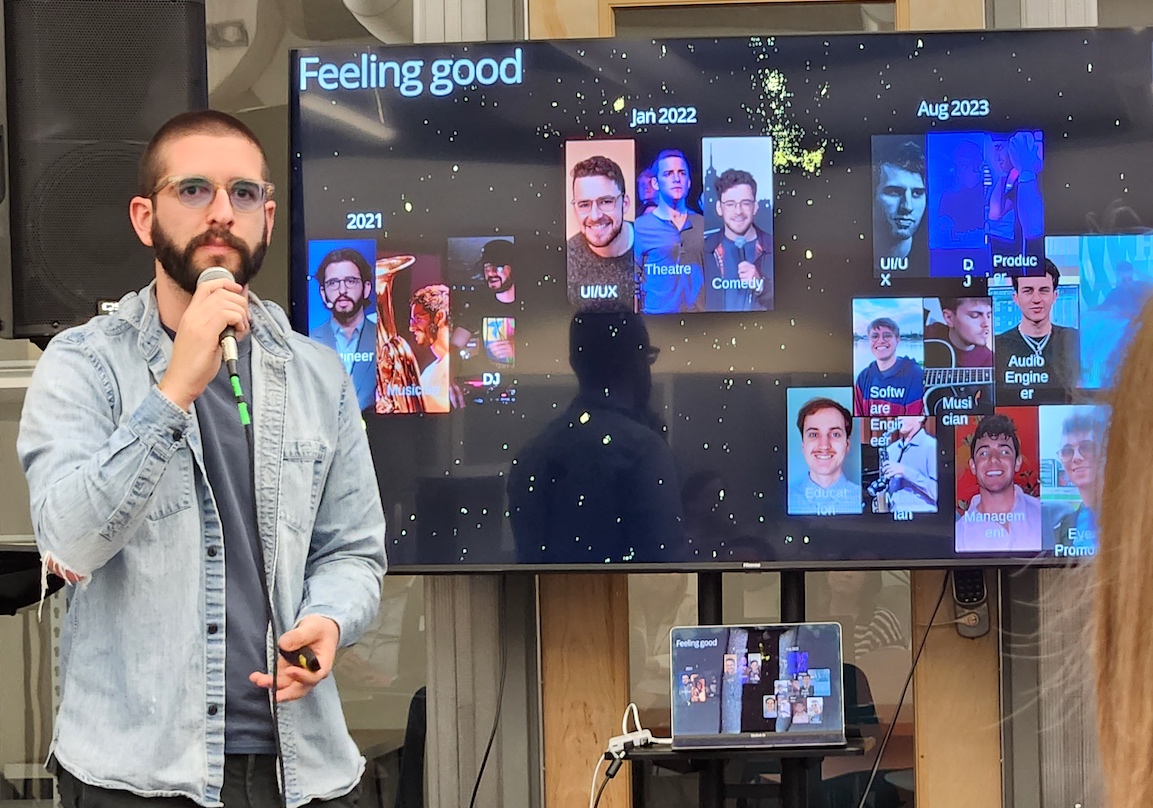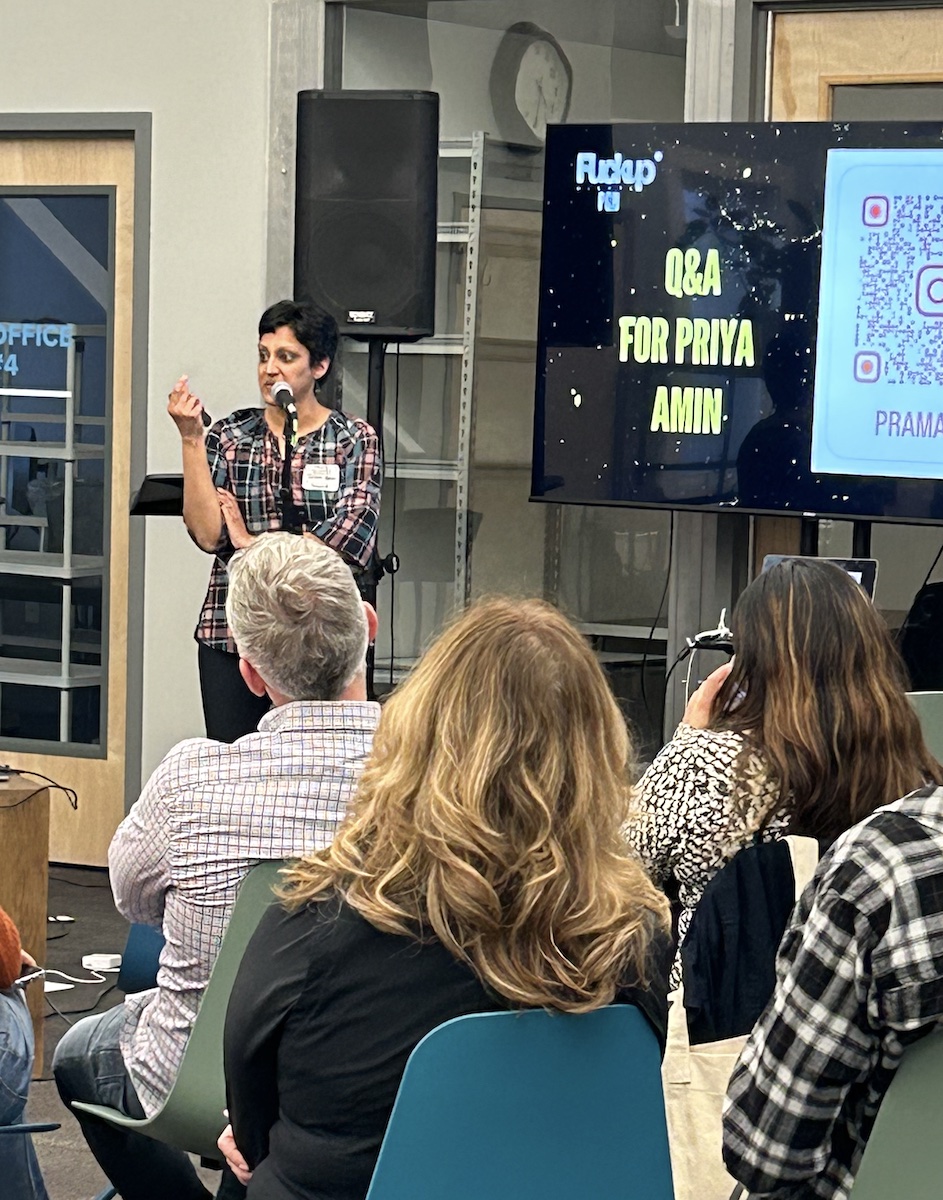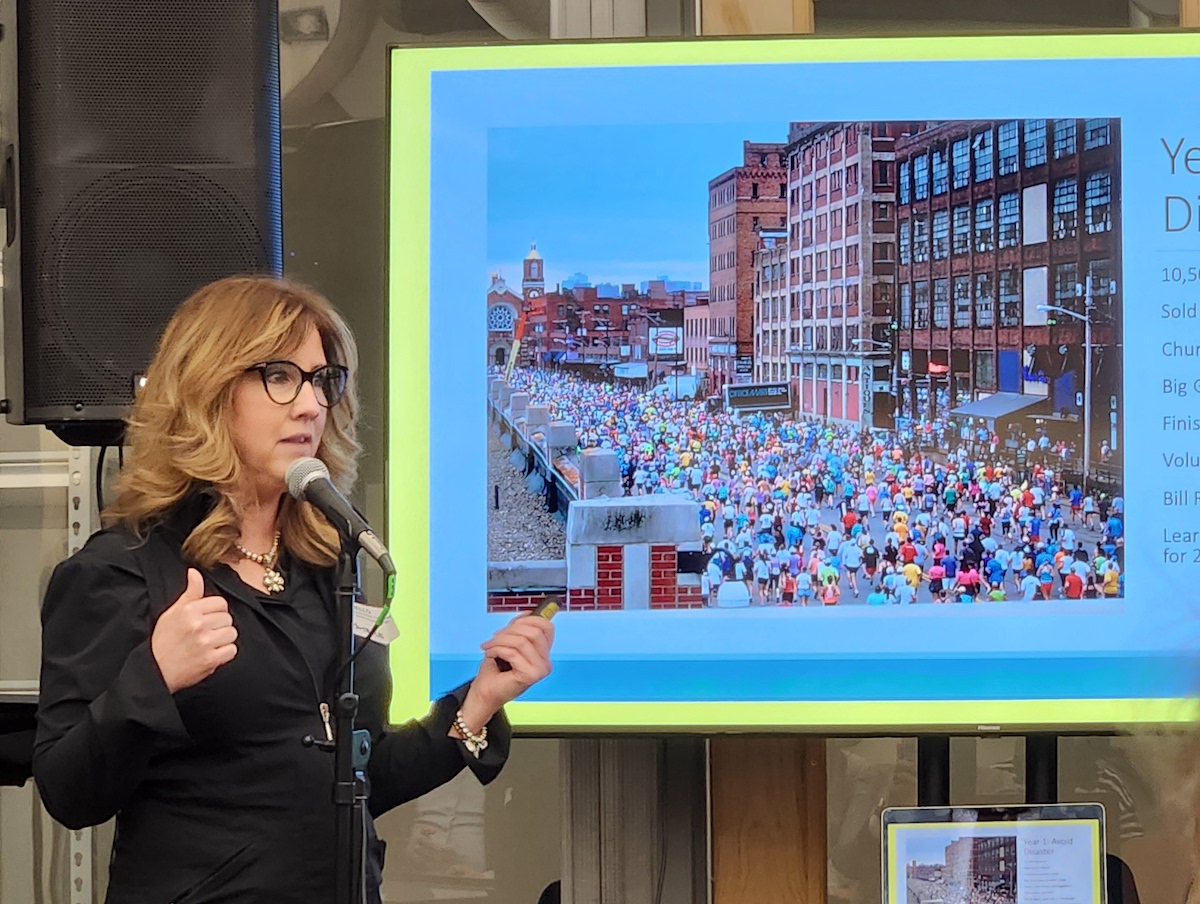It was October 2022, and Joe Maggiore had been invited to pitch his startup to an investment group, “Shark Tank”-style, in the Kelly Strayhorn Theater. He’d never pitched for money before and jumped at the chance — without quite realizing who his audience would be.
“And, it was bad,” he said. “It was really, really bad.”
His Conduction is an entertainment tech company that melds electronic music with live performances (think DJs performing with orchestras) with the help of its software. The audience turned out to be about a hundred multi-millionaires, none of whom seemingly understood what EDM was, let alone the startup’s business model.
He bombed.
Maggiore shared his story during the XchangeInnovation Week edition of Fuck Up Nights, the recurring event dedicated to lessons from failure. Hosted by the Pittsburgh chapter of the Product Development & Management Association at InnovatePGH’s Avenu hub in Oakland, the latest iteration featured three founders and execs discussing some of their worst professional moments — and how others can avoid the same fate.
Joe Maggiore: Know your audience

A dinner was planned for the pitching founders and investors, but immediately after he got offstage, the CEO and founder told Fuck Up Night attendees, he called a car to get him out of there. Then he remembered every entrepreneurship book he’d read that said: If you can’t move on from failure, you won’t succeed.
“Probably one of the proudest moments of my life to date: I canceled the Lyft,” Maggiore said.
He sucked up his pride, headed back in and forced himself to face the people who’d just ripped him apart onstage. A younger member of the investor group who turned out to be a huge EDM fan struck up a conversation. They chatted the rest of the night.
That investor has since become a “huge advocate” for Conduction, Maggiore said.
- The lesson: Know your audience. If you offer a niche service, you might not be served by trying to sell to a general group. And always talk to at least one stranger — you might just find out they’re a secret Odesza fan (or insert your own industry-relevant reference here).
Priya Amin: ‘Listen to your body before you shut down’

In 2021, Priya Amin was struggling.
Until that summer, she was the CEO of Flexable, a startup she cofounded to provide backup childcare services to working parents. But the financial and organizational limitations of the pandemic forced her to shut down the company.
She told Fuck Up Nights attendees that she had been experiencing deep burnout, with physical symptoms such as nosebleeds. Making the decision to quit allowed Amin to focus more on her mental health, rebalancing her work and home life to prevent the burnout that contributed to the decision to leave Flexable.
She slowed down, took up crocheting, focused on her family, and started working with a career and life coach. The pause allowed her to figure out what was next, including entrepreneur in residence roles at Robert Morris University and the University of Pittsburgh.
- The lesson: “Listen to your body before you shut down,” she advised. “I’m never going to not listen to my body again.”
(Here’s more on what Amin learned from her pandemic-time decision to close Flexable.)
Patrice Matamoros: Communicate, communicate, communicate — then plan for the worst

She’s now the president of the nonprofit Junior Achievement of Western PA, but back in 2009, Patrice Matamoros was tasked with reviving the Pittsburgh Marathon after a six-year hiatus as CEO of parent organization P3R.
The return was anything but smooth.
That first year, Matamoros told the Fuck Up Nights crowd, the org’s main goal was to “avoid disaster,” yet disaster came anyway. For one, leadership forgot to engage local clergymen in the planning, she said — key stakeholders, as the selected route would be interrupting around 60 churches’ services on race day, the first Sunday of May.
“They were so offended because I didn’t think of them,” she said, understandably so. “It was a failure.” They ended up rerouting the course three weeks before the race to avoid the churches, though that brought other logistical headaches.
The next year, more “chaos.” The race had been scheduled during Pitt’s graduation weekend, causing so much traffic that some parents missed seeing their kids walk. A bomb threat interrupted festivities, too.
One clear win Matamoros called out: She left P3R in 2019, but before she did, she had the foresight to buy just-in-case disaster insurance for communicable disease, even though very few event-based organizations had it at the time. It saved the organization when COVID-19 hit.
- The lesson: Anything that can go wrong, might, so plan for every worst-case scenario. And be sure to engage all possible stakeholders early.







